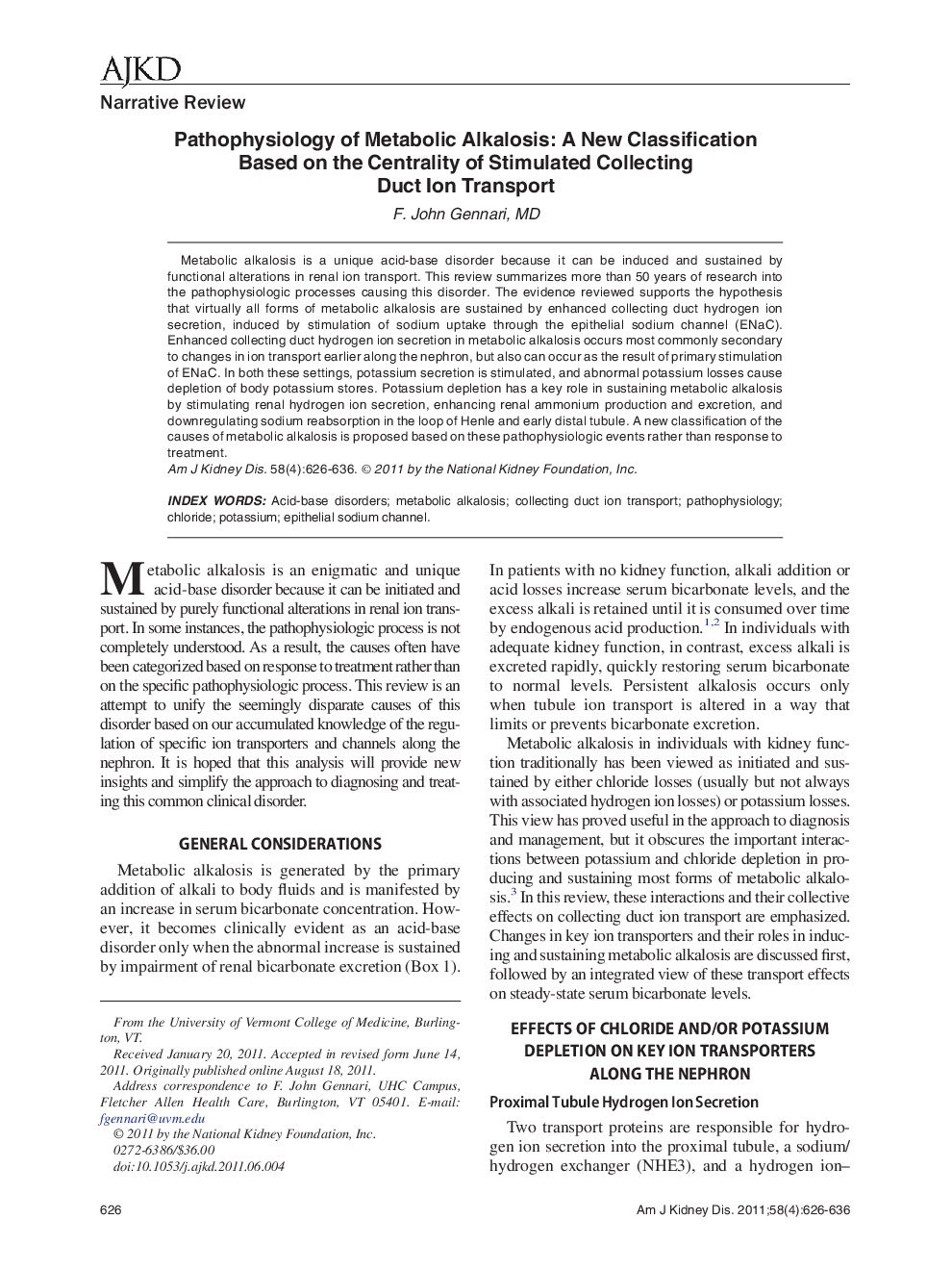| Article ID | Journal | Published Year | Pages | File Type |
|---|---|---|---|---|
| 3849045 | American Journal of Kidney Diseases | 2011 | 11 Pages |
Abstract
Metabolic alkalosis is a unique acid-base disorder because it can be induced and sustained by functional alterations in renal ion transport. This review summarizes more than 50 years of research into the pathophysiologic processes causing this disorder. The evidence reviewed supports the hypothesis that virtually all forms of metabolic alkalosis are sustained by enhanced collecting duct hydrogen ion secretion, induced by stimulation of sodium uptake through the epithelial sodium channel (ENaC). Enhanced collecting duct hydrogen ion secretion in metabolic alkalosis occurs most commonly secondary to changes in ion transport earlier along the nephron, but also can occur as the result of primary stimulation of ENaC. In both these settings, potassium secretion is stimulated, and abnormal potassium losses cause depletion of body potassium stores. Potassium depletion has a key role in sustaining metabolic alkalosis by stimulating renal hydrogen ion secretion, enhancing renal ammonium production and excretion, and downregulating sodium reabsorption in the loop of Henle and early distal tubule. A new classification of the causes of metabolic alkalosis is proposed based on these pathophysiologic events rather than response to treatment.
Keywords
Related Topics
Health Sciences
Medicine and Dentistry
Nephrology
Authors
F. John MD,
